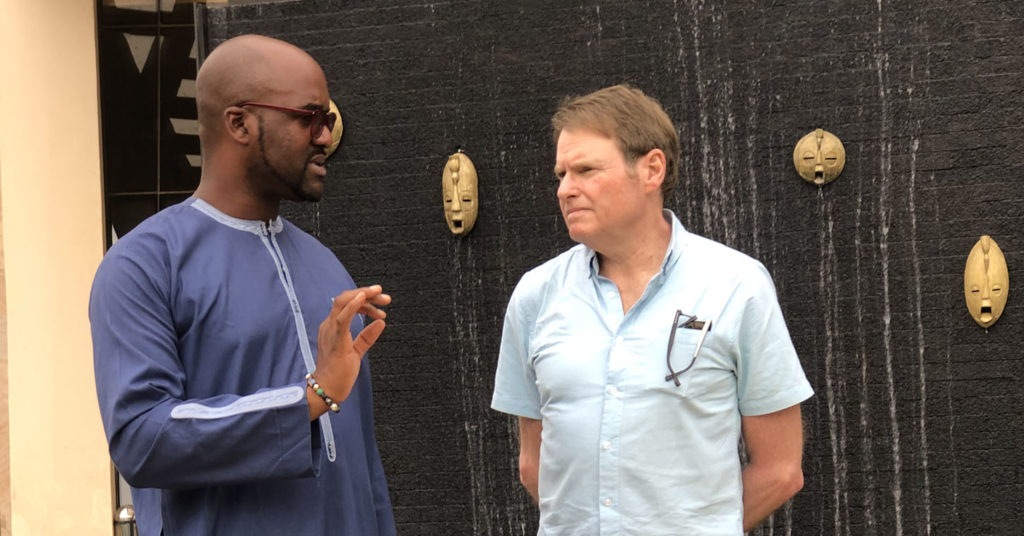Inclusive research and multilingualism are crucial for tackling critical health challenges

Prof. Yap Boum, researcher at Epicentre/ MSF, and John McConnell, Editor-in-Chief of The Lancet Infectious Diseases, outside the Epicentre in Niamey, Niger (Photo by Domiziana Francescon)
Meningitis, malaria and malnutrition are the biggest health challenges for the Sahel region – a geographical area just below the Sahara desert that encompasses portions of 10 African countries.
In January, the Epicentre Medical Day in Niamey, Niger, brought together researchers, public health experts and government officials to discuss best practices and ongoing issues for the country and the Sahel region. Epicentre Africa serves as the research and training arm of Médecins Sans Frontières (MSF), or Doctors without Borders, with centers in Paris, Uganda and Niamey.
I sat down with Prof. Yap Boum II, Regional representative for Epicentre Africa, and John McConnell, Editor-in-Chief of The Lancet Infectious Diseases, who shared their views on creating inclusive multilingual research systems; opportunities and challenges in health research; and emerging trends in the field.
On multilingualism
Can you share your thoughts on multilingualism in health research, and francophone research in particular?
YB: Multilingualism in health research is one solution to address the challenge of exclusion of researcher to global health because of their language. Francophone researchers, for example, have no or limited access to global health because they do not speak English. This happens not only for the scientific publications that they cannot read or publish but they are also excluded from the international scientific conferences where they cannot interact, and lastly from the funding call they cannot apply too. Therefore translation plays a huge role in ensuring that no one is left behind because of their language.
JM: The dominance of English as the language of scientific communication can be a barrier to researchers from non-English speaking countries who are not bilingual. The language barrier limits the ability of researchers to get published, to have their research disseminated and discoverable, and to read the scientific literature.
John, please tell us more about The Lancet’s multilingual abstracts project.
JM: As a first step in tackling this issue, The Lancet journals are offering to publish translated abstracts of research articles in the language of the country from which the article originates. The translation will be provided by the authors of the paper and published as an online appendix. Although I doubt journals will ever have the resources to publish full-text translations in multiple languages, improvements in translation technology might eventually break down language barriers.
During the current coronavirus outbreak, we are offering to make available Chinese translations of entire articles (not just the abstract) if authors are able to provide these.
Read the full article on Elsevier Connect: “Inclusive research and multilingualism are crucial for tackling critical health challenges“, Domiziana Francescon, 4 March 2020.

















